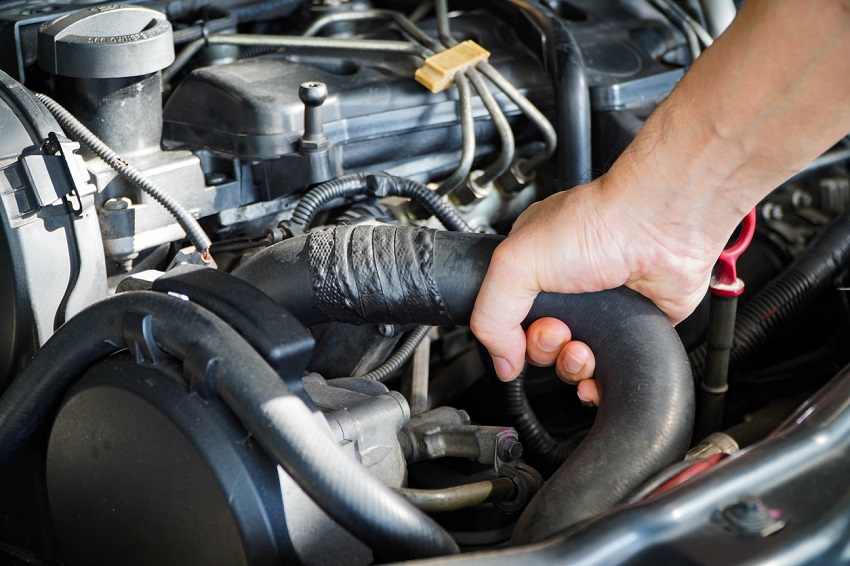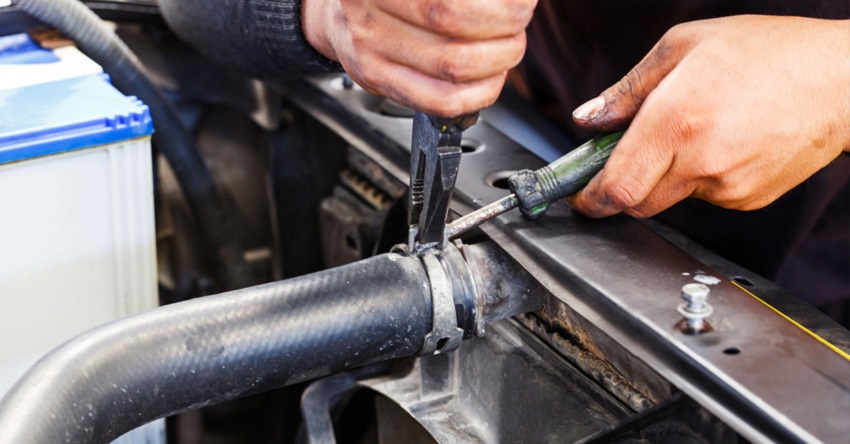Radiators play a crucial role in keeping our vehicles’ engines cool and preventing them from overheating. However, the importance of radiator hoses is often underestimated. These seemingly humble components play a vital role in the cooling system, ensuring that the engine operates at an optimal temperature. In this article, we’ll delve into the world of radiator hoses, exploring their functions, types, maintenance, and why choosing the right hose is essential for the overall health of your vehicle. This article is provided by buzzymoment.com
Understanding the Radiator System
Before we dive into the significance of radiator hoses, let’s briefly understand how the radiator system works. The radiator acts as a heat exchanger, dissipating heat generated by the engine during combustion. Coolant, a mixture of water and antifreeze, flows through the engine and absorbs the excess heat. The heated coolant then travels to the radiator, where it releases the accumulated heat to the surrounding air, cooling down in the process. Once the coolant cools, it returns to the engine to repeat the cycle.
The Role of Radiator Hoses
Radiator hoses serve as the vital connections between the engine, the radiator, and other cooling system components. They are responsible for transporting the coolant to and from the engine and radiator. These hoses must withstand high temperatures and pressure, making them a critical component in maintaining the engine’s temperature. Look at the heater core hose diagram.
Different Types of Radiator Hoses
There are typically two types of radiator hoses used in vehicles:
1. Upper Radiator Hose:
The upper radiator hose connects the top of the radiator to the engine’s thermostat housing. Its primary function is to carry the cooled coolant from the radiator and deliver it to the engine to regulate the operating temperature.
2. Lower Radiator Hose:
The lower radiator hose connects the bottom of the radiator to the water pump of the engine. This hose carries the heated coolant away from the engine to the radiator, where it releases the accumulated heat.
Importance of Choosing the Right Radiator Hose
Selecting the appropriate radiator hose for your vehicle is crucial. A high-quality radiator hose ensures efficient coolant flow, preventing the engine from overheating, which can lead to severe damage. Here are some essential reasons why choosing the right radiator hose matters:
1. Temperature Resistance:
The right radiator hose must withstand extreme temperature fluctuations. Inferior quality hoses might deteriorate quickly, leading to leaks, bursts, and potential engine damage.
2. Longevity and Durability:
A durable radiator hose can last significantly longer, saving you from frequent replacements. Premium hoses are made from high-quality materials that can withstand wear and tear, ensuring the longevity of your cooling system.
3. Optimal Engine Performance:
Efficient coolant circulation ensures that the engine maintains its ideal operating temperature. This, in turn, enhances overall engine performance and fuel efficiency.
4. Prevention of Coolant Leaks:
Choosing a reliable radiator hose significantly reduces the risk of coolant leaks. Leaks can not only lead to engine damage but also pose environmental hazards and contribute to coolant loss.
Signs of a Failing Radiator Hose
As with any vehicle component, radiator hoses can wear out over time. Being aware of the signs of a failing hose can help you address issues before they escalate:
1. Visible Cracks or Bulges:
Inspect your radiator hoses regularly for visible cracks, bulges, or signs of swelling. These indicate that the hose is weakening and needs replacement.
2. Coolant Leaks:
If you notice puddles of coolant beneath your vehicle, it’s a clear sign of a leak. Promptly address any leaks to prevent engine overheating.
3. Engine Overheating:
An overheating engine could be a result of a malfunctioning radiator hose. If your engine temperature gauge rises unusually, it’s time to have the hoses checked.
4. Soft or Spongy Hoses:
When hoses become soft or spongy to the touch, it suggests they have lost their structural integrity and must be replaced.
Proper Maintenance and Care
To ensure the longevity and efficiency of your radiator hoses, follow these maintenance tips:
1. Regular Inspections:
Inspect your radiator hoses regularly for any signs of wear and tear. Catching issues early can prevent potential damage to the engine.
2. Replace as a Set:
When replacing one radiator hose, it’s recommended to replace all hoses simultaneously. This ensures uniformity in performance and reduces the risk of future failures.
3. Use Quality Coolant:
Using high-quality coolant with the right water-to-antifreeze ratio is essential. This can prevent corrosion and clogging of the cooling system.
4. Avoid DIY Repairs:
While some vehicle maintenance tasks can be done at home, it’s best to leave radiator hose replacements to professionals. They have the expertise and tools to do the job safely and effectively.
Conclusion
Radiator hoses may seem like insignificant components, but they play a crucial role in keeping our vehicles running smoothly. By effectively transporting coolant between the engine and radiator, these hoses ensure the engine operates at the optimal temperature, enhancing overall performance and longevity. Choosing the right radiator hose is vital for preventing coolant leaks, engine overheating, and costly repairs.
Regular maintenance and inspections are essential to catch any issues early on and preserve the health of your cooling system. Remember, when it comes to radiator hoses, investing in quality and durability will pay off in the long run. So, don’t overlook the significance of these hoses, and always prioritize their proper care to keep your vehicle running at its best.

